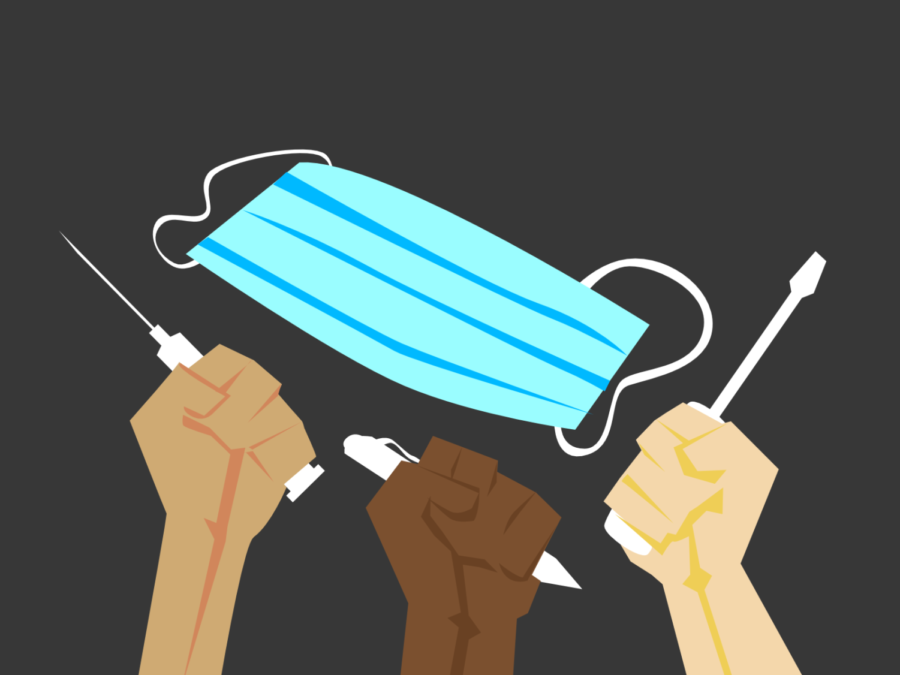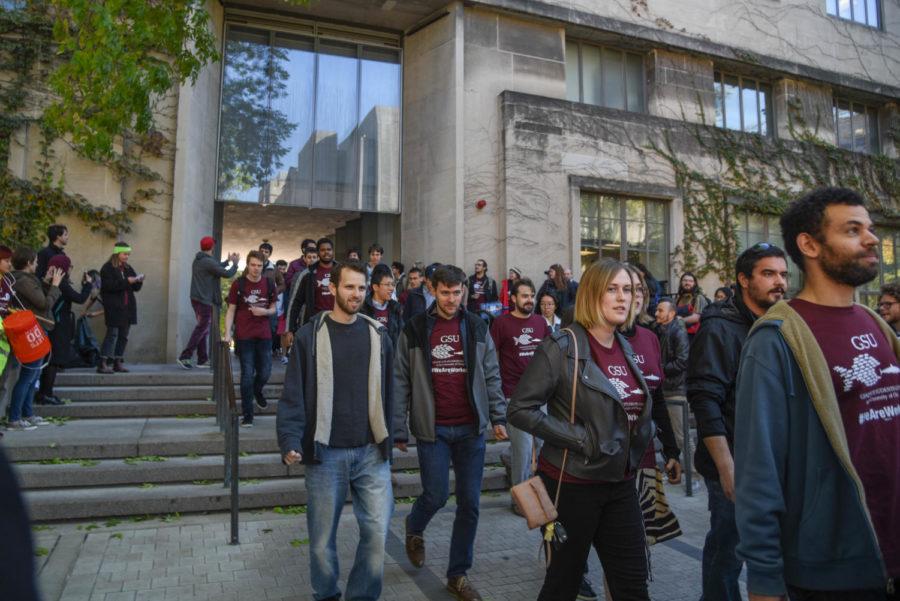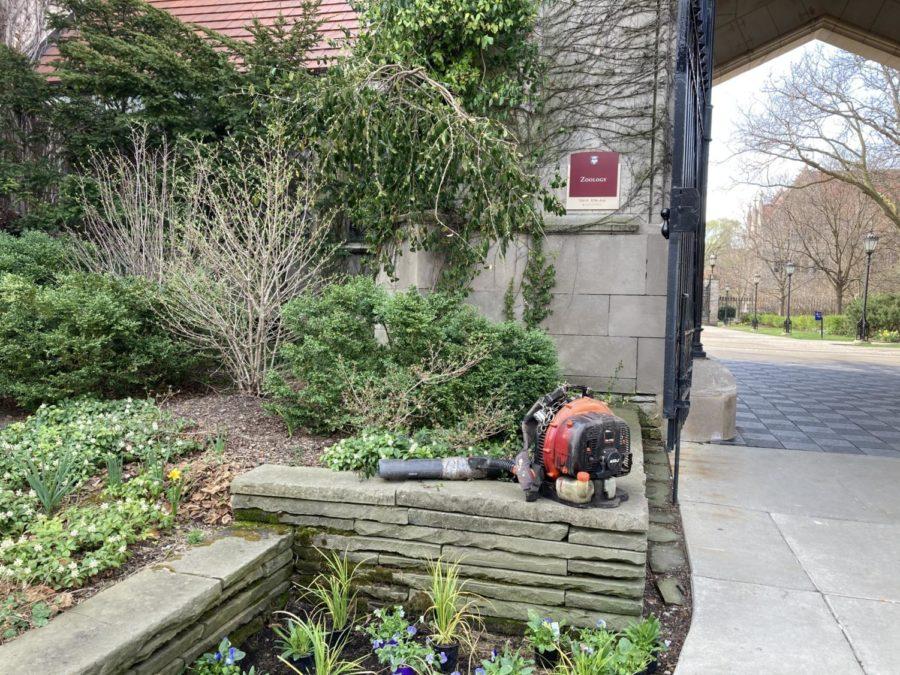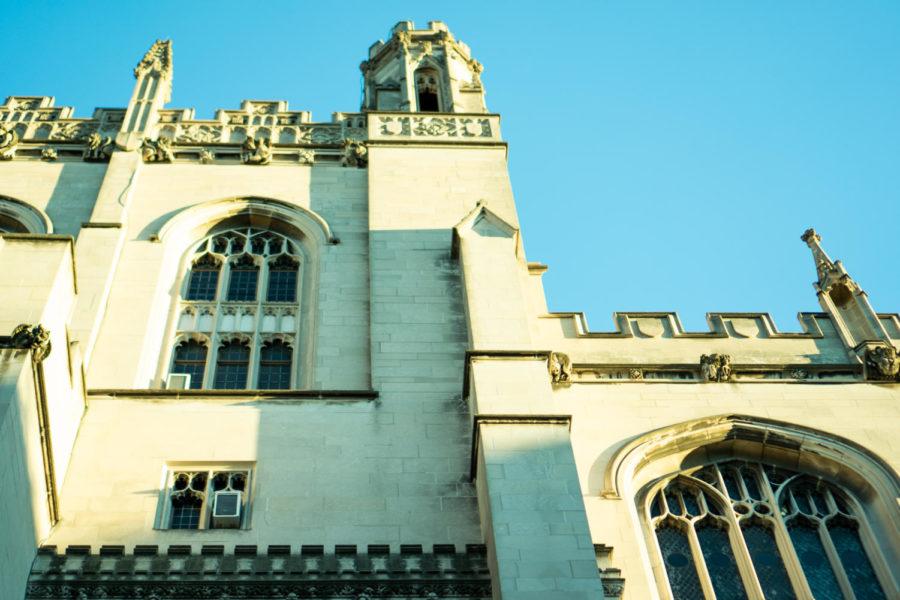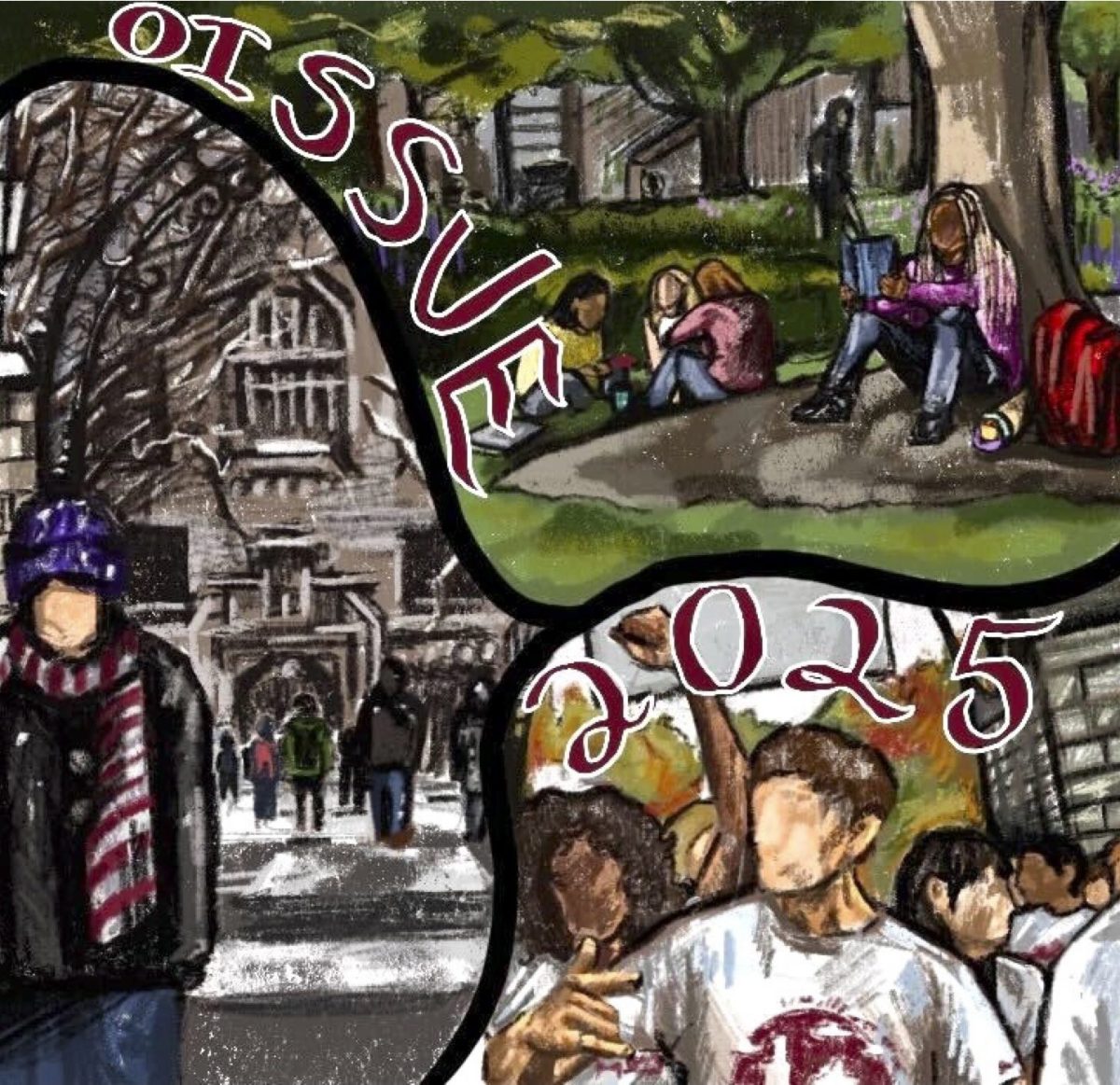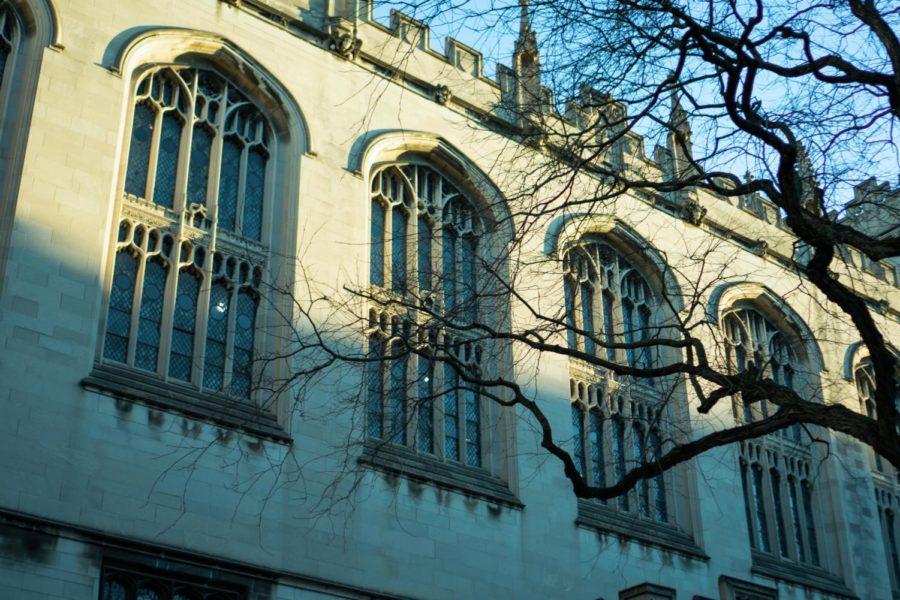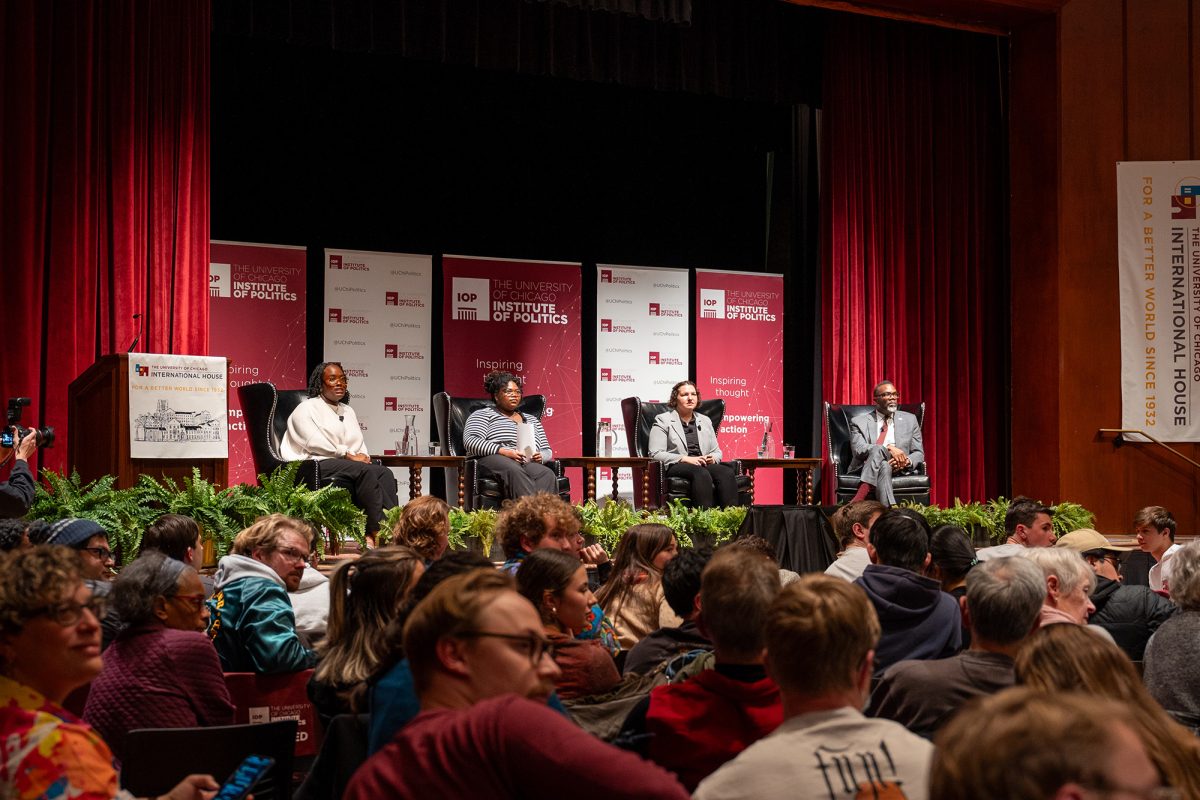It has now been over a year since the beginning of the COVID-19 pandemic. Hundreds of thousands of lives have been lost in the United States, and countless more indelibly scarred. In Chicago alone, more than 5,000 of our neighbors, coworkers, classmates, and family members have died. And yet, for the past 13 months, workers at the University of Chicago—among them medical center nurses, building engineers and janitors, food service workers, faculty members, library workers, and graduate students—have continued, at significant personal risk, to labor to keep this institution running and profitable. In the midst of unfathomable loss and suffering, social isolation, mass political unrest, and economic depression, the University administration has expected us to continue working almost as if there was no pandemic at all. In the worst of cases, University COVID-19 policies have actively put workers in harm’s way.
Reopening campus for in-person learning in the fall constituted a blatant disregard for the health and safety of the most vulnerable members of the University of Chicago community as well as the Hyde Park, Kenwood, and Woodlawn neighborhoods. In the months since, workers across University sectors have had to face inadequate or poorly enforced social distancing measures, lack of access to safe places on campus to eat and rest throughout the day, directives from on high allowing increased capacity in University facilities such as libraries (even as the data suggested that cases were not decreasing), and a dearth of PPE. What’s more, workers across the University were summarily informed throughout the summer and into autumn quarter that we would have to further sacrifice for the bottom line of the University of Chicago—an institution with an endowment of more than eight billion dollars—as retirement contributions and other benefits were cut. These decisions were made with no financial transparency; in fact, the administration refused requests by National Nurses United (NNU) for disclosure of fiscal hardship, in contravention of established labor practices. In addition, more recently we have found that the University administration has failed to inspire confidence in vaccination efforts or even to include some workers—such as graduate students—in certain waves of vaccine eligibility, even when those groups of workers are included in citywide, countywide, and statewide eligibility categories. One final and particularly abhorrent blow to worker confidence in the University as an institution has been the Medical Center administration’s decision to deny workers’ compensation claims for nurses who have been out of work for extended periods while recovering from the long-term effects of COVID-19. By denying such claims, the Medical Center administration not only shows blatant disregard for the health and safety of frontline medical workers who have sacrificed so much over the past year but also explicitly defies an emergency amendment to the Illinois Workers’ Compensation rules designed to ensure that essential workers who contract COVID-19 have the right to file claims for treatment and time off related to recovery.
In short, workers at the University of Chicago have overhauled our lives to keep this institution running, all while dealing with the physical, emotional, and financial effects of this devastating global pandemic. In response, the administration has offered little more than platitudes in recognition of our sacrifices, and has in fact cut our benefits and threatened our jobs for challenging their insufficient protections and harmful policies. Those changes that did make some work environments less toxic and more accessible—such as allowing many library workers to work remotely—are not guaranteed to remain as the administration discusses a return to “normal” throughout the summer and fall. At no point in this pandemic have workers at the University of Chicago had the autonomy to make decisions about which policies are most beneficial and keep us the safest, even while we are the ones with the best knowledge of what those policies would be, especially those of us forced to work in person. Some workers feel as if the administration simply wants to pretend that this past year never happened, which is an insult to everyone we have lost.
The Labor Council understands that it is we, not our bosses, who keep each other safe. As such, we have organized throughout the past year to provide support to University workers and community members where the UChicago administration has failed to do so (or has actively harmed workers). In the fall, we circulated a petition with demands for the administration to keep campus closed to in-person learning and to put in place more stringent safety protocols and better sick-leave policies. Later in the quarter, we organized a Reopening Experiences Forum, where nurses, adjunct faculty, graduate student lab workers, and library workers shared testimonials about the lack of adequate safety precautions for in-person work and thus the regular harm they faced in their workplaces. More recently, in response both to the news that just half of the Medical Center’s eligible staff opted to get vaccinated in the first wave and to our knowledge of how convoluted and discouraging the process of obtaining a vaccine appointment could be, the Labor Council acted once again to fill in the gaps left by the University administration in keeping our community safe and informed. We organized a Vaccine Justice Forum with renowned Black public health experts, sociologists, historians, and journalists to address common questions about vaccine safety, medical racism and bioethics, and lack of equity in vaccine distribution. Subsequently, members put together a Vaccine Resource Guide with comprehensive information about how to obtain a vaccine appointment and where, what to know about vaccine safety and efficacy, and further reading about public health and health equity. We are planning a May Day action to commemorate workers’ sacrifices and those we have lost over the past year.
The University of Chicago Labor Council seeks not only to support the members of our constituent unions and other groups but also all workers and marginalized people in our community. We work closely with other UChicago organizations like the Library Activist Network, UChicago United and #CareNotCops, and the More Than Diversity campaign. We also collaborate and maintain close connections with broader neighborhood and city-wide groups like the Greater Chicago Industrial Workers of the World (GCIWW), Southside Together Organizing for Power (STOP), and Tenants United Hyde Park/Woodlawn. We have begun to work with the nascent Experimental Station (ES) Union to support ES workers in their fight to obtain voluntary recognition for their union and to fight back against the exploitative practices of their management and board of directors. The Labor Council understands that all our struggles for tenants’ rights, labor rights, anti-racism and abolition, and community autonomy are connected. We look forward to continuing to build solidarity and horizontal, working-class power with our fellow UChicago and South Side organizing coalitions. The University administration puts us all at risk and constantly devalues our labor and our communities. In the next year, as we “emerge” from the coronavirus pandemic and continue to deal with its profound, long-lasting effects, we understand that it is only through collective action that we will obtain more say over the health and futures of our workplaces and neighborhoods.
The University of Chicago Labor Council (UCLC) is a coalition of workers, union representatives, and community members from across the University of Chicago system and the Hyde Park/Woodlawn neighborhoods. We bring together UC Medical Center nurses in National Nurses United (NNU), library workers, clerical workers, and dining hall workers in Teamsters Local 743, graduate student workers in Graduate Students United (GSU), janitors and building engineers in Service Employees International Union (SEIU) Locals 1 and 73, faculty members in SEIU Faculty Forward and the American Association of University Professors (AAUP), and various unaffiliated University workers. We work together to increase collaboration, communication, and solidarity between member unions, other labor groups, and related community organizations.



